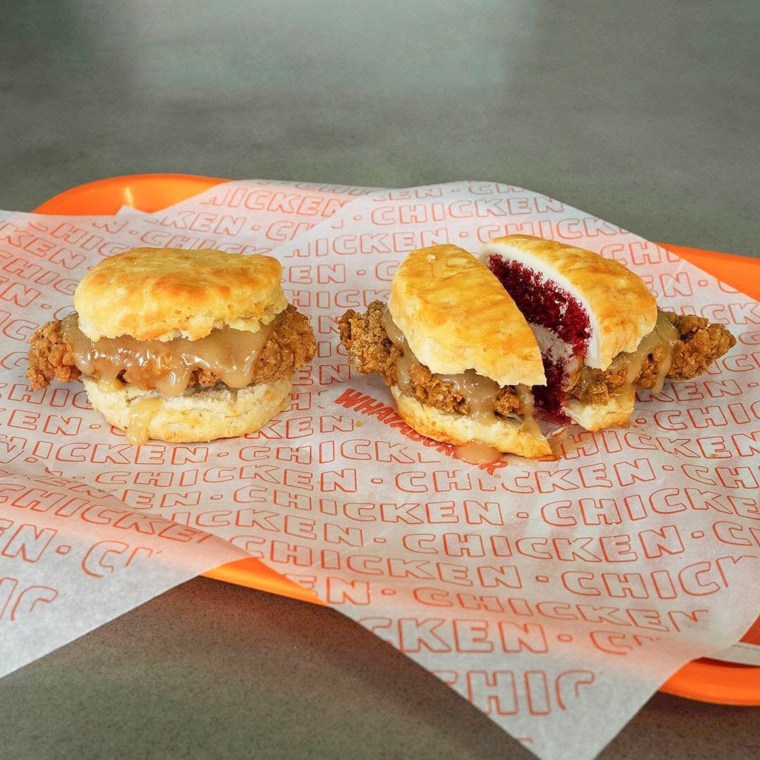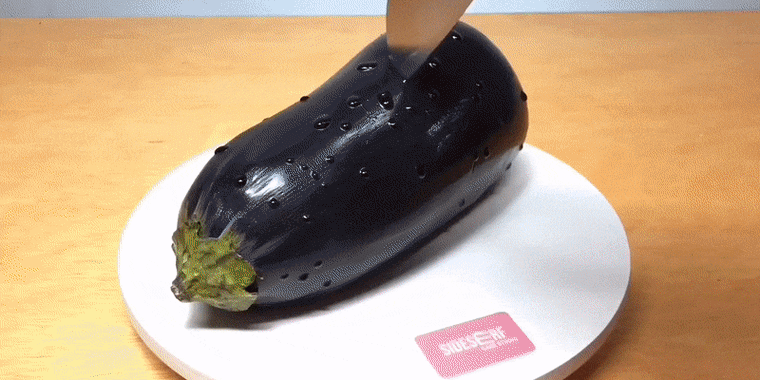The internet is sick of cake.
For the past two weeks, the internet has been saturated with videos of seemingly hyperrealistic everyday objects — a Croc shoe, a pickle, a bulldog — that trick the eye to reveal a cake beneath. Just as quickly as these surrealistic cakes became ubiquitous came the detractors begging the phenomenon to end.
In other words: A viral meme has now grown stale, reaching the end of its popularity.
“There’s a bunch of different life cycles that memes can have. Some memes will just explode and die off within like a week,” says Don Caldwell, the editor-in-chief of meme database Know Your Meme. “Some memes will stick around for 10 years, and it’s really bizarre to see all the different ways it can happen.” It’s not uncommon for a meme to see a resurgence months, or even years, down the line after it’s lost popularity.

Cake memes became the internet’s newest craze after several viral videos were posted of ordinary objects being sliced open to reveal the sweet interior. The too-realistic-to-be-cake confections take the sense of wonder that comes from reality television shows like "Cake Wars," and boil them down to just the reveal — a miracle of fondant or buttercream or edible vanilla wafer paper and ingenuity. The result? A viral meme.
Shane Tilton, an associate professor of multimedia journalism at Ohio Northern University, credited part of the cake meme’s virality to the coronavirus quarantine. At the beginning of quarantine, an organic trend of making sourdough bread took over the internet, and Tilton said the cake meme appears to be the natural progression of that trend.
“We’re not having as many experiences in the real world, so what the meme does for us is it takes these objects we normally see in the real world … and reinterprets them,” Tilton said. Memes like this and others are “taking the mundane and making it magical.”
The recent viral cake memes were kicked off when BuzzFeed’s “Tasty” posted a video to Twitter, titled, “These are all cakes,” on July 8 featuring the work of Istanbul-based master cake artist Tuba Geçkil of Red Rose Cake & Tuba Geçkil. Tasty's video has since been viewed more than 31.6 million times.
Natalie Sideserf, of Sideserf Cake Studio in Texas, specializes in hyperrealistic cakes and posted her own viral video montage a day later, which has been viewed more than 17 million times. One of Sideserf’s mesmerizing cakes includes an onion (again, completely cake) with realistic skin made of vanilla wafer paper that flaked away as she cut into it.
“Some people think I literally took onion skin off of an onion and put it around a cake to make my onion cake,” Sideserf said.
Other bakers have since jumped on board including baker Ben Cullen, who posted an image of him slicing into his heavily tattooed hand — which was really just cake.
As the videos picked up followers, so came mainstream media. The New York Times then profiled the cake phenomenon in the paper’s Style section on July 14. O, the Oprah Magazine, grabbed a psychologist to muse on why the meme is so unsettling the same day, and Eater jumped on board as well. Even John Oliver referred to the cake meme during a segment on HBO's “Last Week Tonight With John Oliver.” The list of fascinated publications goes on.
But as soon as the internet becomes oversaturated with a meme, the trend often starts to decline.

“The cake meme, in my opinion, is definitely on its way out," Caldwell, the editor of Know Your Meme, said. "There are a number of things that are telltale signs of a meme being on its last legs. Some of the things people like to point to as signs of this are when brand accounts on Twitter and social media use the meme."
Since the cake trend went viral, accounts like the Midwestern convenience store “Kum & Go” and Playstation’s U.K. account have all used or retweeted the meme. This kind of mainstream attention can signal a meme’s popularity will soon come to an end, Caldwell explained.
“I think the basic sentiment is, if your parents know what the meme is, it’s dead,” Caldwell said.
Then again, sometimes it’s not.
Caldwell pointed to “Rickrolling,” one of the most unusually long-lasting memes in internet history. The “Rickroll” is a bait-and-switch meme, according to Know Your Meme, in which a user believes they are going to click on or view one thing, only to be greeted by singer Rick Astley’s “Never Gonna Give You Up.” Know Your Meme dates “Rickrolling” back to mid-2007 and the meme is still used to this day.
A meme with a similar lifespan to cake is 2015’s “the dress,” according to Caldwell. “The dress” was an online debate over an image of a garment that some people viewed as white and gold while others saw it as black and blue. The dress seemed to suddenly dominate internet conversation, it was covered by mainstream media outlets and shared by brands, but within a matter of days that internet moved on.
And yet the idea of the dress has staying power: Whenever an online debate breaks out over color perceptions of an item, the dress, and it's difficult to pin down appearance, surfaces as a touchstone.
Maybe when people refer to quarantine in years to come, they’ll be reminded of this meme as a symbol of the surrealism of the moment. Ceci n’est pas un pipe.


